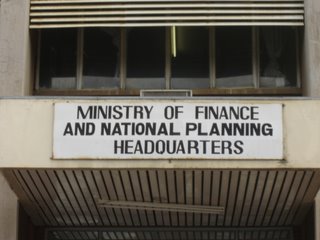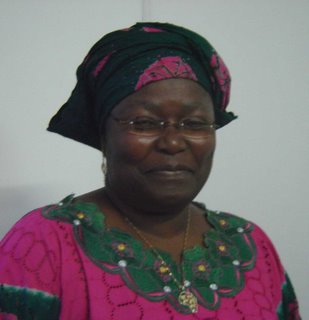
(With very humble apologies to Eliot Weinberger.)
Yesterday, we heard some different stories. The director of Bwafwano Community School and Home-based Care Service - which serves a community of 70,000 poor people on the outskirts of Lusaka - told us that although official statistics say that 68% of Zambians live on less than $1 a day, in her community she suspects the true figure is closer to 95%. We heard her insist that policies imposed by the International Monetary Fund (IMF) and wother lending institutions were to blame for this poverty.
Later, we heard the resident representative of the IMF say that the main Lusaka hospital was 'horrible', and that he would 'rather die than go there'. We heard him ask what he could do, and dispute that IMF salary caps for public workers were adding to the appalling drain of skilled healthcare staff out of the country. He admitted that the IMF suggestion of adding VAT to food and mostquito nets was 'insensitive' and probably should not have been made. We also heard him say that parliament should not have the right to scrutinise loan agreements, and that he  didn't think the IMF should try to be more active in making its information available. We heard him say that he thinks the IMF does better when it is 'lurking in the background'.
didn't think the IMF should try to be more active in making its information available. We heard him say that he thinks the IMF does better when it is 'lurking in the background'.
Yesterday and today, I also heard what campaign groups are doing in Zambia, separately and together. I heard about the launch of Mine Watch Zambia, which is revealing and examining the terms under which Zambia's mines were privatised. I heard Nachilala Nkombo of Jubilee Zambia say how much we have achieved and will achieve working together. And I heard Emily Sikazwe (pictured left) of Women for Change say, 'The struggle continues'.
Wednesday, January 31, 2007
What I heard in Lusaka
Subscribe to:
Post Comments (Atom)


2 comments:
maybe if all the corruption stopped in Africa --maybe the people will see some change!!! All the money that is given certainly dowsn't go to the needy=it goes to the militia and greasy men in power!!!!
This is a common misconception; corruption is certainly a problem in some places, but nowhere near to the extent that it is often portrayed in the media. Please go here: http://www.jubileedebtcampaign.org.uk/?lid=2665 for more information on this issue.
Post a Comment